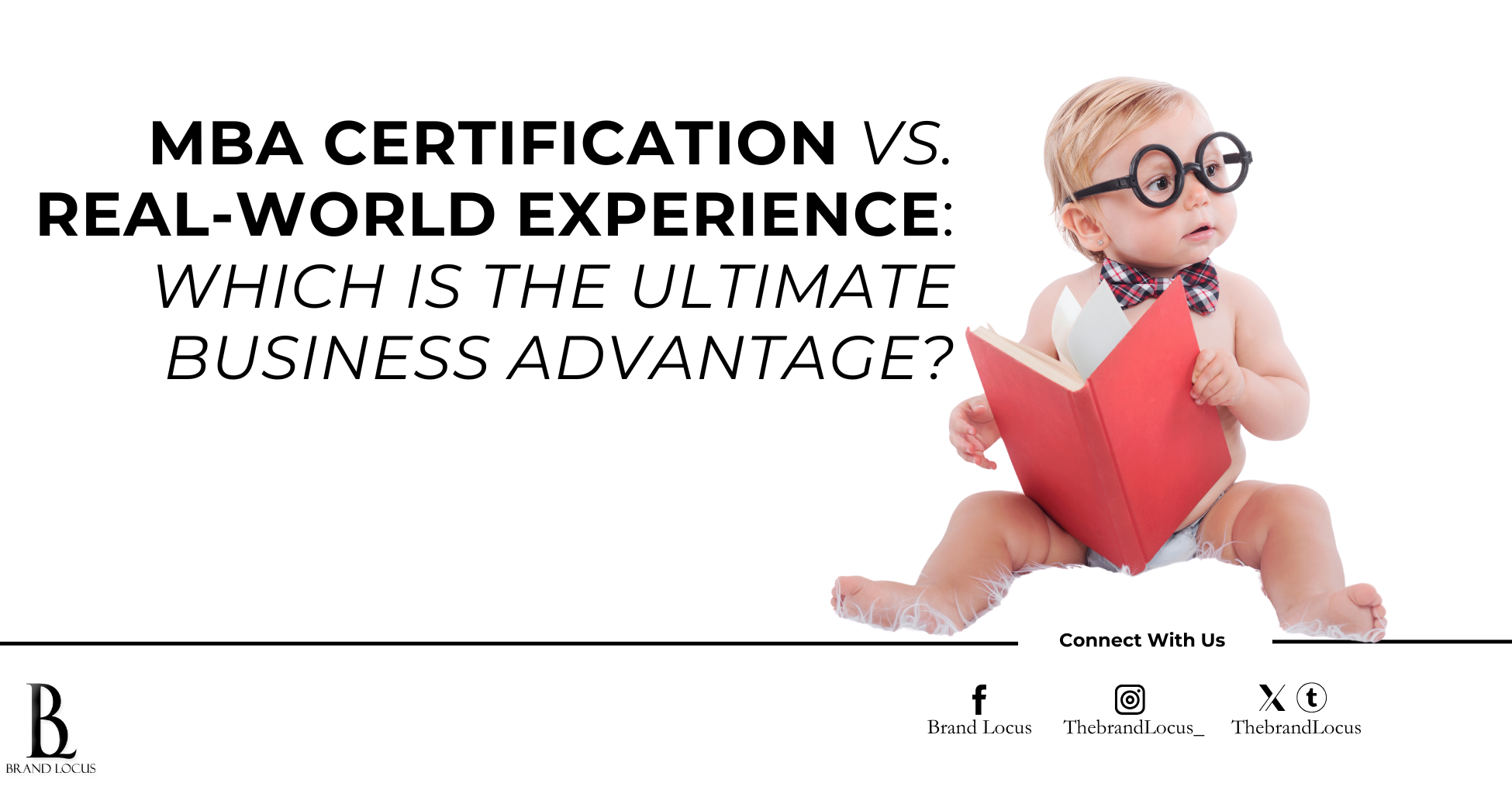In the evolving landscape of business, the value of MBA certification compared to hands-on experience remains a hot topic. While the classroom offers structured learning and academic rigor, the real world provides lessons that no curriculum can match. For entrepreneurs and professionals, knowing where an MBA shines and when practical experience triumphs is critical to making informed career decisions.

The Value of MBA Certification
- Comprehensive Business Knowledge
MBA programs provide a structured education in finance, marketing, operations, and leadership, arming individuals with essential tools to analyze and solve complex problems. - Enhanced Credibility
Having an MBA certification adds weight to your resume and opens doors to roles and opportunities that prioritize formal qualifications, especially in the corporate world. - Global Networking Opportunities
Top-tier MBA programs connect students to a global network of alumni and industry leaders, creating avenues for collaborations, mentorships, and career growth. - Strategic Thinking and Innovation
Frameworks like Design Thinking or Blue Ocean Strategy, taught in MBA programs, equip students with innovative approaches that reshape industries.
The Case for Real-World Experience
- Practical Problem Solving
On-the-job experience sharpens the ability to handle unforeseen challenges and apply intuitive solutions, a skill critical for entrepreneurs. - Adaptability and Resilience
Real-world exposure forces professionals to navigate uncertainties, a key trait in today’s fast-paced business environment. - Relationship Building
Practical experience fosters interpersonal skills through real interactions with clients, colleagues, and stakeholders. - Learning by Doing
Experiential learning embeds lessons more deeply, as success and failure shape professional instincts in a way no degree can replicate.
Where MBA Certification Stands Out
Despite the advantages of experience, there are moments where an MBA certification shines:
- In Corporate Leadership: Where structured decision-making frameworks are essential.
- During Market Expansion: As international business knowledge from an MBA can provide invaluable insights.
- To Access Funding: Some investors view an MBA as a marker of competence and commitment.
Blending the Best of Both Worlds
To thrive in today’s business world:
- Consider an MBA Certification: If you aim for leadership in corporate settings or want a global perspective.
- Focus on Practical Experience: If entrepreneurship or startup ventures are your primary goals.
- Combine Both: Supplement on-the-ground experience with executive education programs for targeted learning.
Conclusion
The debate between MBA certification and practical experience isn’t about choosing one over the other. It’s about understanding when and how each can propel your career. In the end, balancing the structured insights of an MBA with the grit of real-world experience creates the ultimate advantage.
